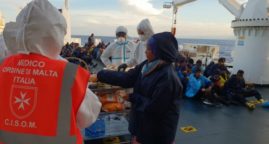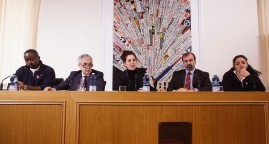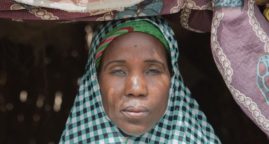“Inaction is sometimes more costly than action.”
Since the Arab Spring the situation of the Muslim world is experiencing a bloody evolution. The Syrian desert has become a battlefield between Sunnites and Shiites, the proponents of moderate Islam and fundamentalists.
Instability in the region has led to the deaths of nearly 250,000 people and to the displacement of nearly 4 million refugees.How can the internationalization of an initially local conflict be explained? Does the European Union, which is directly concerned by the terrorist threat from this region, have a role to play in the political process? If so, in what way?
Interview and response elements with Jean-Pierre Filiu, professor at Sciences Po (Paris), also teacher at the universities of Columbia (New York) and Georgetown (Washington). He recently published “The Arab Revolution, ten lessons on the democratic uprising” by Fayard.
Read the full article on the Robert Schuman Fundation website
Related Articles
Aquarius Migrants, Order of Malta’s Medical Team on Dattilo: “In their eyes the hope for a better future”
06/18/2018. “In their eyes the hope for a better future”
Italian Relief Corps’ New Syrian Refugee Rescue Mission in the Aegean presented to the Press
02/18/2016. The mission patrols the sea separating Greece from Turkey. The medical staff have saved over 600 human lives in less than two months.
Malteser International calls for more humanity ahead of World Refugee Day
06/20/2018. The UNHCR estimates there are now almost 70 million people forcibly displaced across the globe.





